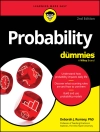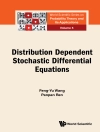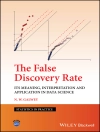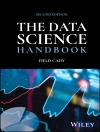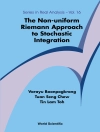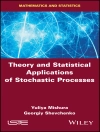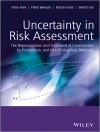Hawkes processes are studied and used in a wide range of disciplines: mathematics, social sciences, and earthquake modelling, to name a few. This book presents a selective coverage of the core and recent topics in the broad field of Hawkes processes. It consists of three parts. Parts I and II summarise and provide an overview of core theory (including key simulation methods) and inference methods, complemented by a selection of recent research developments and applications. Part III is devoted to case studies in seismology and finance that connect the core theory and inference methods to practical scenarios.
This book is designed primarily for applied probabilists, statisticians, and machine learners. However, the mathematical prerequisites have been kept to a minimum so that the content will also be of interest to undergraduates in advanced mathematics and statistics, as well as machine learning practitioners. Knowledge of matrix theory with basics of probability theory, including Poisson processes, is considered a prerequisite. Colour-blind-friendly illustrations are included.
Tabela de Conteúdo
Background.- Hawes Process Essentials.- Simulation Methods.- Likelihood Methods.- EM Algorithm.- Bayesian Methods.- Spectral Methods.- Goodness of Fit.- Traditional Applications.- Financial and Actuarial Applications.- Biological Applications.
Sobre o autor
Patrick J. Laub is a mathematician and software engineer who is currently a postdoctoral fellow at the University of Melbourne. He has published works on a variety of subjects in statistics, applied probability, actuarial science, and data science, and is the author of statistical software packages in Python, Stata, and Julia. His Ph D in applied probability was jointly awarded by the University of Queensland and Aarhus University.
Young Lee is a postdoctoral fellow in the Faculty of Arts and Sciences at Harvard University. He is a researcher working in the fields of applied probability, statistics, and machine learning. Dr. Lee has a doctorate in Statistics from the London School of Economics.
Thomas Taimre is a senior lecturer at the School of Mathematics and Physics at the University of Queensland. His research focuses on stochastic modelling and simulation, ranging from theoretical work in probabilistic modelling and stochasticcontrol, to developing efficient simulation techniques, to applying Monte Carlo methods and numerical methods to understand the behavior of laser sensors that rely on optical feedback. Dr. Taimre earned his doctorate in mathematics from the University of Queensland.




